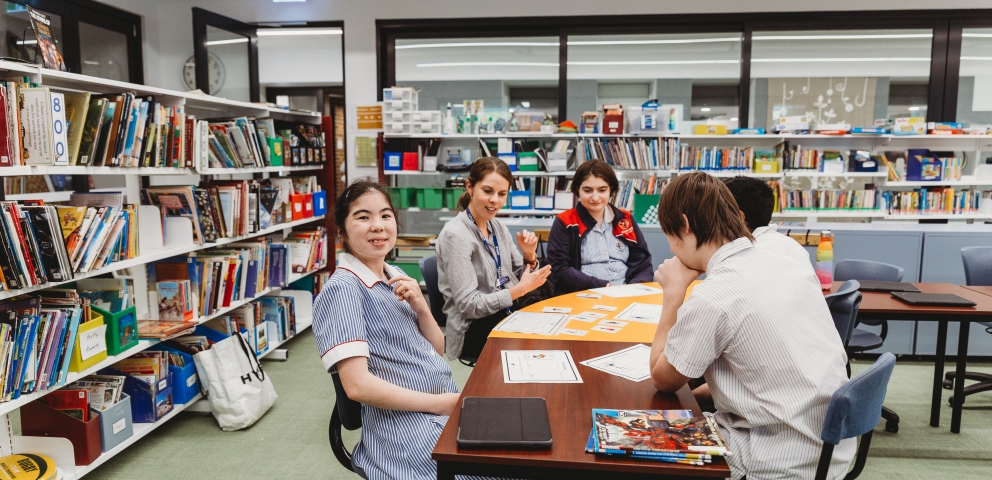
The Organisation for Economic Co-operation and Development identifies literacy as the most crucial functional life skill for success, life-long learning, and well-being. These skills are considered particularly vital for students with communication and learning difficulties. With this in mind, our comprehensive, whole-school approach to literacy is aligned with the new NSW syllabus outcomes across all Key Learning Areas (KLAs), ensuring consistency and high expectations for all learners.
Students with diverse literacy needs are supported through targeted, evidence-based instruction across English and Literacy lessons.
We explicitly teach the Great Eight components of literacy instruction—oral language, phonological awareness, phonics, fluency, vocabulary, comprehension, writing, and reading engagement. These elements are embedded across our programs to support students in becoming confident communicators and critical thinkers.
Literacy instruction is delivered through differentiated small group sessions tailored to our students’ current skill levels:
Students are assessed on an ongoing basis using a range of tools to monitor progress and inform instruction, while annual baseline testing to assist with planning includes:
In addition, students with significant sensory impairments or expressive and receptive language needs are supported through alternate formats such as Braille and AAC. Computer literacy is embedded in the learning throughout all KLAs and all KLAs consolidate literacy skills as part of our whole school literacy policy.
Since language and literacy development are intricately interrelated, our goal is to equip all students with the skills they need to build meaningful relationships, access their community, develop autonomy, and pursue future employment opportunities.